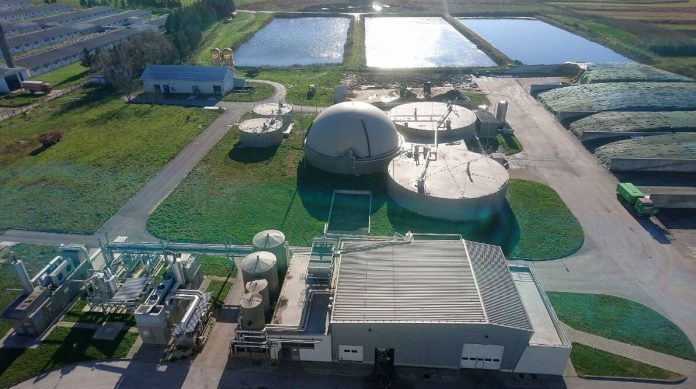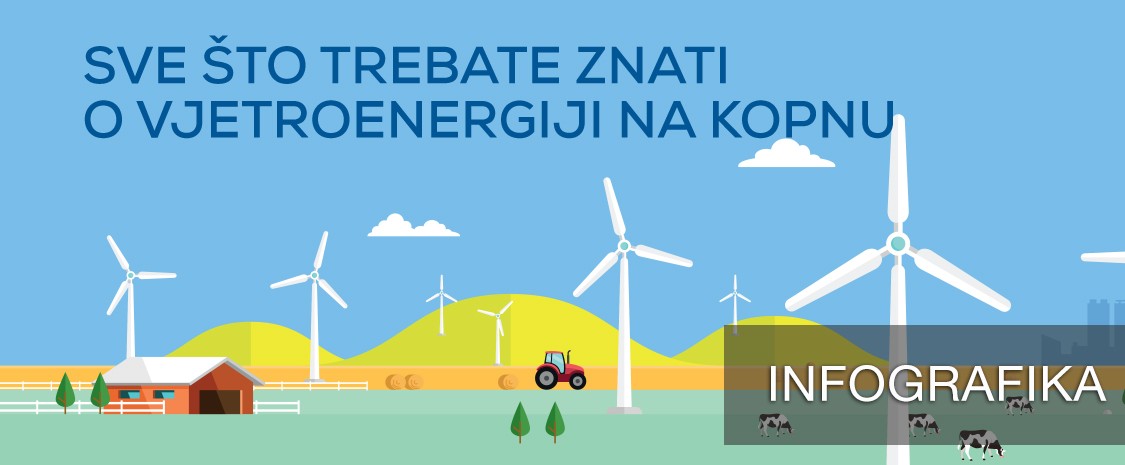Jučer je u Hotelu Antunović, u organizaciji Energetika marketinga i Hrvatske stručno-znanstvene udruge za energetiku, strojarske tehnologije i obnovljive izvore energije (HESO), održan 22. Plinarski forum. Iako je ovaj događaj tradicionalno posvećen fosilnim energentima, organizatori događaja su, potaknuti energetskom i plinskom krizom, u program uključili alternativna rješenja i tehnologije proizvodnje, distribucije i korištenja plina. Upravo zato, na poziv organizatora, OIEH je sudjelovao u dvije tematske cjeline jučerašnjeg foruma.
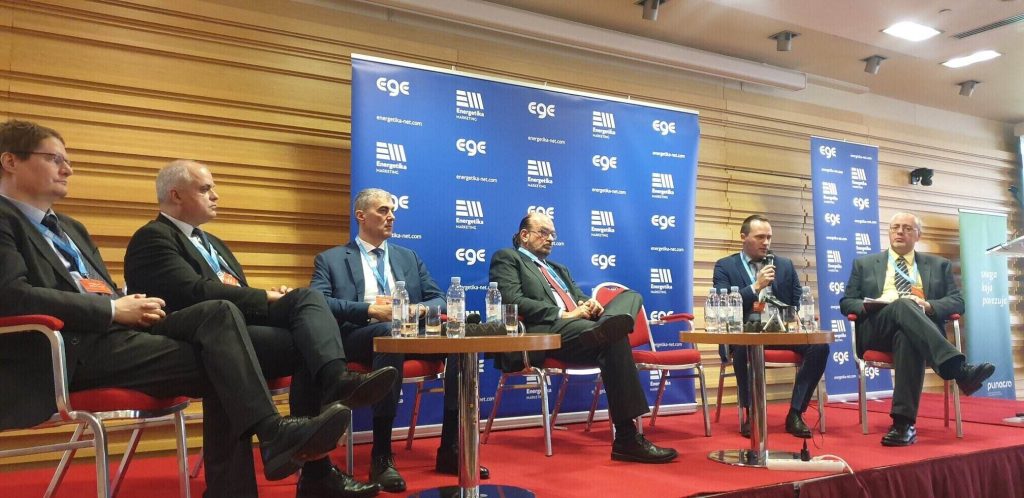
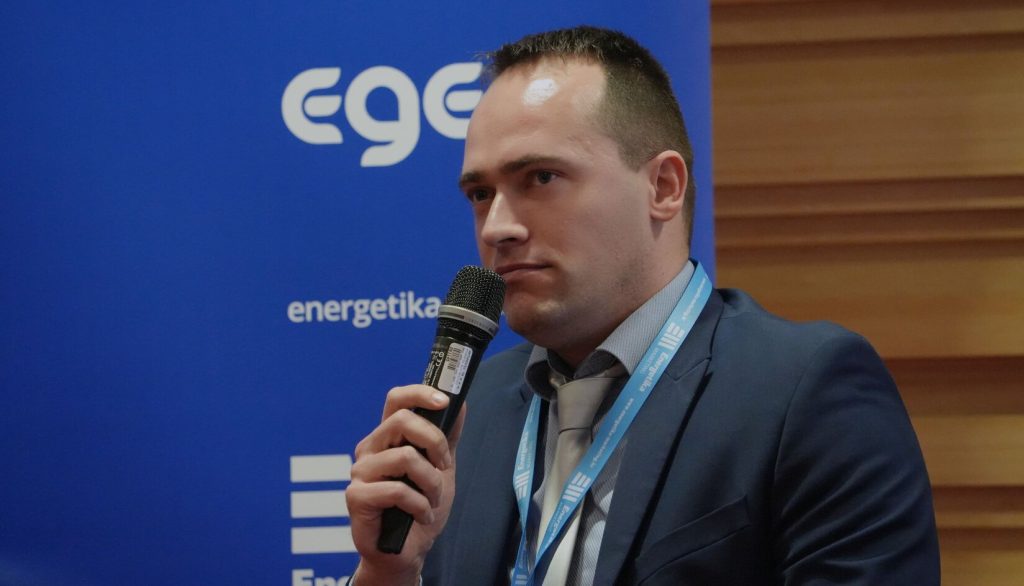
Unutar prve tematske cjeline „Budućnost plina, plinske tehnike i plinskog gospodarstva“ Krešimir Milorad, član OIEH i predsjednik uprave Energije Gradec d.o.o. sudjelovao je u okruglom stolu na kojem se raspravljalo o plinu, energetskoj tranziciji, obnovljivim izvorima i razvoju plinskog gospodarstva u sljedećim godinama. Uz njega, na okruglom stolu su sudjelovali Robert Bošnjak, dipl. ing. (Plinacro d.o.o.), prof. dr. sc. Vladislav Brkić, dipl. ing. (Rudarsko-geološko-naftni fakultet), prof. dr. sc. Neven Duić, dipl. ing. (Fakultet strojarstva i brodogradnje), Dean Gnjidić, dipl. ing. (E.ON Hrvatska d.o.o.) te Goran Popović, dipl. ing. (Gradska plinara Zagreb d.o.o.).
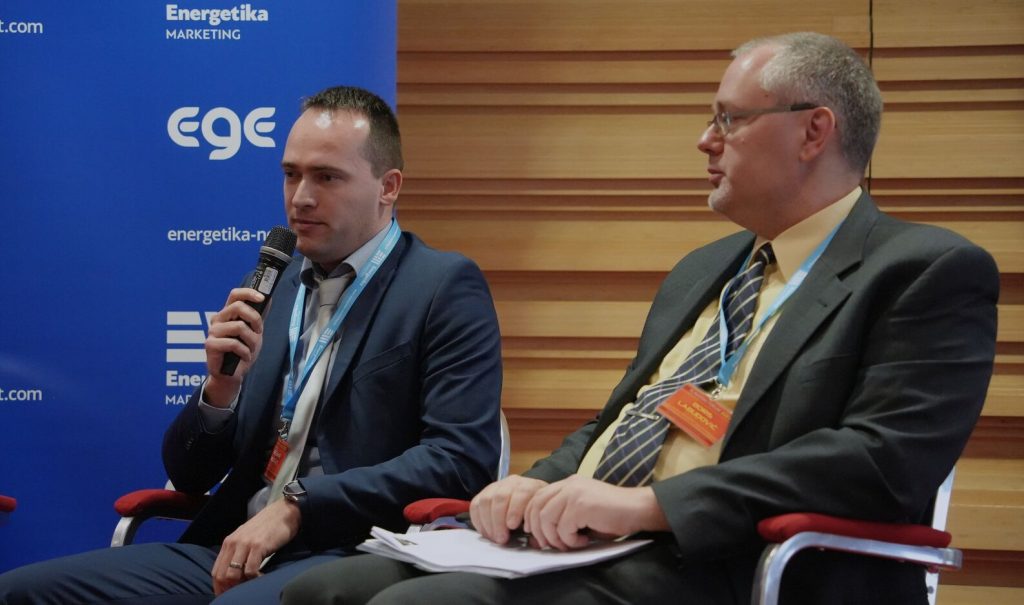
Krešimir Milorad govorio je o trenutnom stanju bioplinskog sektora u Hrvatskoj, preprekama s kojima se suočava te mogućnostima razvoja proizvodnje biometana te njezine integracije u postojeće i planirane plinske tokove. Naglasio je da bioplinska postrojenja u Hrvatskoj trenutno rade u neodrživim uvjetima s obzirom na problem koji imaju s rastom cijene svih ulaznih troškova, osobito sirovine, dok za električnu energiju koju proizvode i prema ugovoru predaju HROTE-u još uvijek dobivaju iznos koji je ispod ekonomske održivosti. Naveo je i sve prednosti i dobrobiti koje se ostvaruju radom bioplinskih postrojenja za energetski sektor, ali i poljoprivredu, kao i smanjenje emisija CO2. Bioplinaše koji su raskinuli ugovore i izašli na tržište pak trenutno muči činjenica da im se ne priznaje ogroman rast inputa a prodajna cijena električne energije limitirana je i za njih na 180 EUR/MWh, što nije slučaj u nekim drugim zemljama. Ako se to ne promijeni postoji mogućnost gašenja proizvodnje bioplina, rečeno je na Formu. Kao zaključak okruglog stola, između ostalog, navedeno je da je trenutna tehnološka spremnost postojećih tokova visoka te može prihvatiti biometan proizveden anaerobnom fermentacijom, što podržava napore EU o dostizanju cilja REPowerEU od 36 milijardi kubičnih metara proizvedenog biometana do 2030. godine. Također, kao novo čvorište plinske distribucije, Hrvatska kroz razvoj dva nova toka otvara mogućnost šireg plasmana proizvedenog biometana.
Nadalje, sklopu tematske cjeline „Izazovi plinskog gospodarstva“, Mislav Kontek, član OIEH i voditelj razvoja tehnologije tvrtke EnergoVizija d.o.o. održao je prezentaciju naziva „Perspektive bioplina i biometana u Hrvatskoj“.
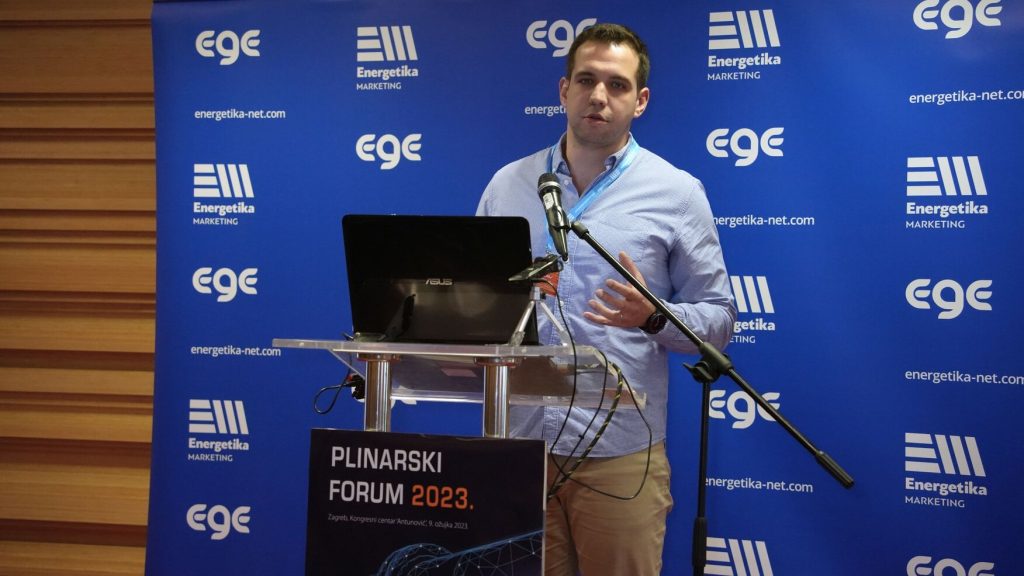
Unutar predavanja upoznao je okupljene s informacijama u vezi s proizvodnjom bioplina, kao i tehnologijama i načinima pročišćavanja i korištenja biometana. Također je uz predstavljanje prednosti korištenja i razvoja bioplinskog sektora, prvenstveno kroz mogućnost stabilizacije energetske mreže te lokalnog i ruralnog razvoja kružnog gospodarstva, naglasio važnost i ulogu bioplina u gospodarstvu.
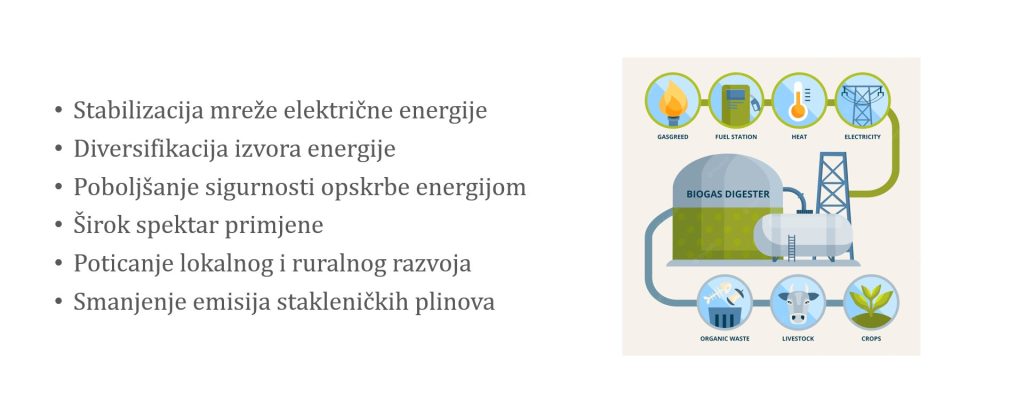
Predstavio je smjernice i strategije EU o ciljevima proizvodnje biometana do 2030. godine te aktivnosti pomoću kojih će se ti ciljevi dostići. Naglasio na koje načine su druge članice izuzele energiju proizvedenu iz bioplina iz primjene mjera Uredbe o hitnoj intervenciji za rješavanje pitanja visokih cijena energije te ukazao na nepovoljnu implementaciju u Republici Hrvatskoj.
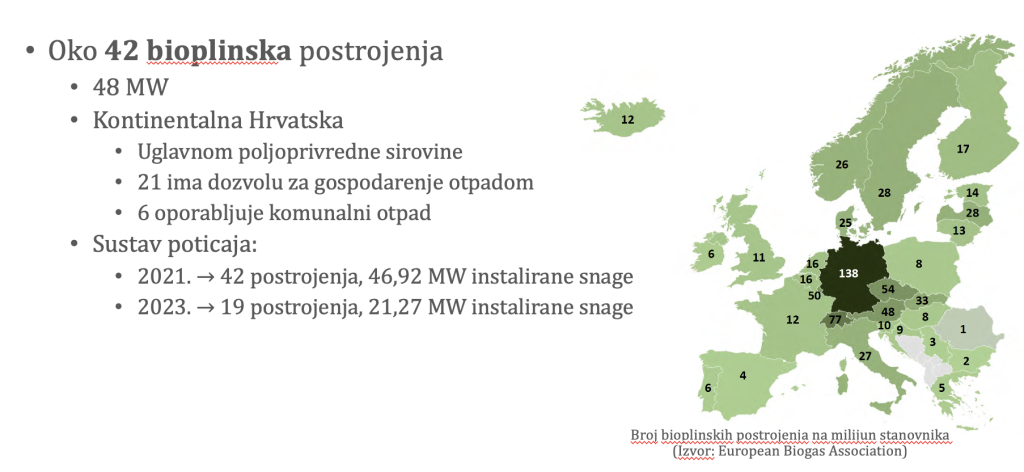
Prikazao je trenutni status razvoja sektora u Hrvatskoj, objasnio čimbenike koji su naveli izlazak većine kapaciteta iz sustava poticaja te prikazao smjernice i strategije RH po pitanju bioplina i biometana kroz Integrirani nacionalni energetski i klimatski plan, Strategiju niskougljičnog razvoja te Zajedničku poljoprivrednu politiku.
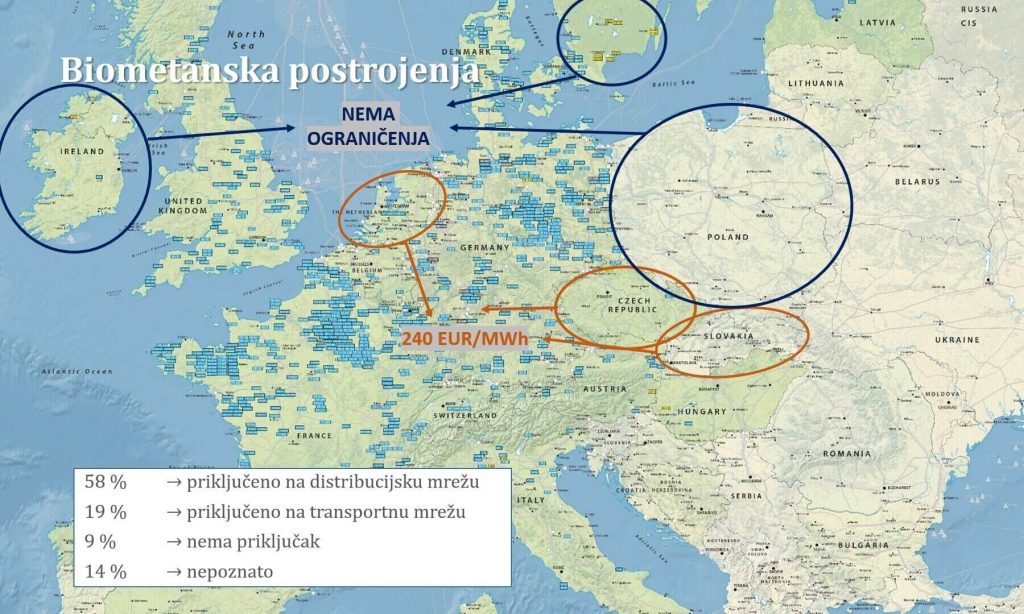
Kao zaključak je, između ostalog, naglasio kako prostor za daljnji razvoj postoji, prema čemu su politike i strategije EU jasno orijentirane. Naveo je najvažnije prepreke poput ograničenja tržišnih cijena, visokih cijena ulaznih sirovina te nejasne, spore i komplicirane biorokracije.
Biometan, energent koji nastaje iz obnovljivih izvora, ima važnu ulogu u postizanju ciljeva plana REPowerEU za diversifikaciju opskrbe plinom i smanjenje ovisnosti o uvoznim fosilnim gorivima, čime se smanjuje izloženost nestabilnim cijenama prirodnog plina. Zbog toga je Europska unija postavila ambiciozan cilj proizvodnje biometana do 2030.od 35 milijardi m3 godišnje. To zahtijeva značajne napore u razvoju sektora, uzevši u obzir da je proizvodnja bioplina i biometana u 2021. iznosila 18,4 mlrd. m3 od čega je biometan samo 3,5 mlrd. m3. Strategije za brzu tranziciju postoje, a odnose se prvenstveno na ubrzani postupak izdavanja dozvola za projekte biometana te izgradnju velikog broja novih postrojenja, ali i nadogradnju postojećih bioplinskih postrojenja, čime se omogućuje pročišćavanje proizvedenog bioplina.
Nakon održane prezentacije, Mislav Kontek dao je izjavu za TV emisiju „Novi milenij“ koja se bavi novim tehnologijama, a emitira se širom Hrvatske kroz mrežu regionalnih televizija. Pojasnio je važnost bioplinskog gospodarstva u ruralnom razvoju i poljoprivredi, kao i ključnu ulogu u kružnom gospodarstvu.
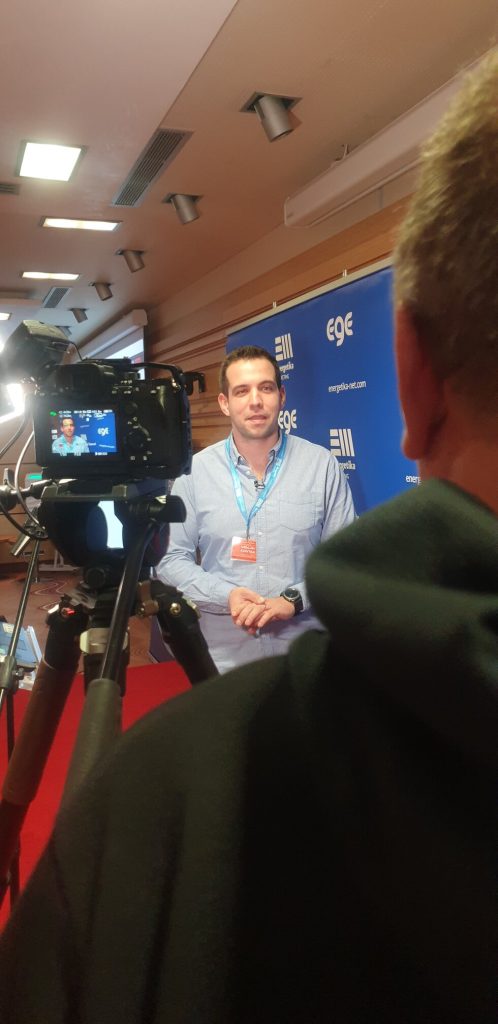
OIEH je upozoravao mjerodavna ministarstva o problemima s kojima se još od kraja 2021. godine. No kad je početkom 2023. godine u Hrvatskoj je na snagu stupila Uredba o Zakonu o hitnoj intervenciji za rješavanje pitanja visokih cijena električne energijje. Uredba se odnosi na ekstrazaradu, a bioplinska postrojenja su zbog nje u gubitku. Prestanu li s radom, Hrvatska ostaje bez proizvodnje električne energije iz tih postrojenja. Time i bez mogućnosti da uopće počne proizvoditi biometan.
“Europska Uredba ostavlja mogućnost svakoj državi članici da propiše mjere na način koji je za nju održiv i koji neće ugroziti njezino gospodarstvo. One koje razumiju važnost bioplinskih postrojenja izuzele ih iz primjene mjera, a među njima su primjerice Njemačka, Poljska, Irska, Švedska. I nadležna tijela u Hrvatskoj su morala promisliti kakav će utjecaj Uredba imati na bioplinska postrojenja. Stoga je nužno hrvatsku Uredbu uskladiti s europskom i implementirati članak 8. koji uzima u obzir specifičnost tehnologija, što se svakako odnosi na bioplinska postrojenja. Samo se tako, uz nužnu korekciju cijene za bioplinska postrojenja koja su još uvijek pod ugovorom s HROTE-om, može omogućiti rad bioplinskom sektoru. To je ujedno i jedini put za proizvodnju biometana” – isječak iz teksta OIEH koji je uvršten u Zbornik Plinarskog foruma.

